Featured
Bonnie Brown: Q&A with Former Dean of Students, Dr. Thomas J. “Sparky” Reardon
*The latest installment in the Ole Miss Retirees features is former Dean of Students, Dr. Thomas J. “Sparky” Reardon. The organization’s mission is to enable all of the university’s faculty and staff retirees to maintain and promote a close association with the university. It is the goal of the Ole Miss Faculty/Staff Retirees Association to maintain communication by providing opportunities to attend and participate in events and presentations.
I think it’s fair to say there’s only one Dr. Thomas J. “Sparky” Reardon. He is truly an original. He is known and loved by all. Sparky is also known for his wicked sense of humor, his loyalty, dedication, and love of Ole Miss. Sparky has influenced thousands of students during his career at Ole Miss.
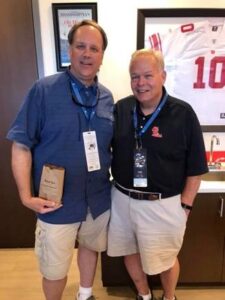
Lee Thigpen and Sparky Reardon. University Communications Photo.
Brown: What was it like growing up in the Mississippi Delta?
Reardon: I love being from the Delta and especially treasure growing up in Clarksdale. For us growing up at that time we enjoyed a freedom, but were expected to behave. In a town like that, there were a lot of eyes on you. I really enjoyed the connections that I made throughout the Delta. It in itself was a community. We thought nothing of driving a considerable distance to go visit with our friends in Greenwood, Cleveland or Greenville.
Brown: Where did you get your nickname “Sparky?”
Reardon: I had an older brother who was expected to be born in October. His delivery was delayed until November. My mother’s cousin jokingly started calling him Speedy which stuck. When my mother found out she was pregnant with me, that same cousin told her, “Well, if you’ve got Speedy, you’ve got to have Sparky.” And it’s been that way ever since.
Brown: Talk about your “Ole Miss story” as a student. During your tenure as sports editor and managing editor of the Daily Mississippian when you were a student, what was the biggest news story?
Reardon: I thoroughly enjoyed my undergraduate years. 1968 to 1972 was a special time to be a college student. I wish that I had made myself more aware of what was happening in the nation and the world. I was busy with student activities, my fraternity and the Daily Mississippian (DM). Three big stories that stand out: the arrest of African American students who were arrested for protesting at the Up with People concert, Ole Miss football with Archie Manning, and our first outdoor rock festival in the Grove.
Up with People: Over fifty African American students were arrested for protesting in support of demands on behalf of black students. It was a volatile time, but these students were the catalyst for changing the status of black student life at Ole Miss.
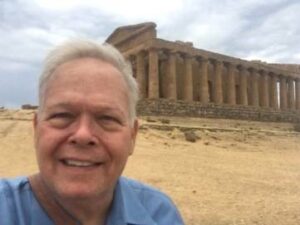
Photo courtesy of Sparky Reardon.
Football: When students ask me when I went to Ole Miss, I tell them Liberty, Sugar, Gator and Peach. Those were the bowl games for us during my four years. As sports editor of the DM, I got to write about Archie’s Army. The 1969 Ole Miss-University of Tennessee game and the preceding week with pep rallies and panty raids were really exciting. We were on top of the world when we beat them 38-0 on a bright, cold November day in Jackson. During this time, I was writing a sports column in the DM called “Spark’s Plug”.
FINALLY — After Woodstock, a group of us started discussing the possibility of a large rock concert in the Grove with lots of acts. We were met with resistance by the administration, but to their credit they finally agreed to let us have it. I was writing a column for the DM called “Hello, Americans!” and started off with one word, “Finally”, which became the name of the festival. It was a big success.
Brown: Please talk about a favorite professor or class at Ole Miss.
Reardon: Believe it or not, Gerald Walton’s “Advanced Grammar” might have been my favorite class as an undergraduate. I also thoroughly enjoyed Vaughn Grisham’s sociology class, Bob Haws’ history class, and Evans Harrington’s Modern American Poetry class. In 1980, as a staff member, I took Willie Morris’ Modern American Novel which was a real treat. It introduced me to Willie who became a very good friend.
Brown: When did your Ole Miss career begin? What positions did you hold? How many years did you work at Ole Miss?
Reardon: My career at Ole Miss began when I was a sophomore and, as fraternity social chair, was called into the Office of Student Activities for an issue. That visit inspired me to start looking at the possibility of pursuing a career in higher education. I think that day following the meeting, I said to myself, “I’m going to be the Dean of Students at Ole Miss.”
I held the positions of Coordinator of Pre-Admissions, Assistant Director of Student Activities, Director of Student Programming, Associate Director of Student Services, Associate Dean of Students, and Dean of Students.
I also really enjoyed the opportunities that I have had to teach EDHE, Leadership courses, the Chancellor’s Leadership Class, and some graduate courses.
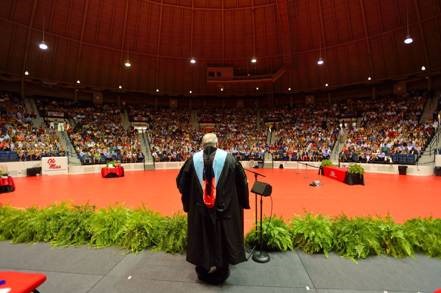
Dr. Thomas “Sparky” Reardon. University Communications Photo.
I worked for 36 years at Ole Miss, 14 of those as dean of students. Our office of the Dean of Students served as primary resource for students and student organizations. At the time we had oversight of student judicial, student government, Greek life, the Union, and student programming. Two of the most important areas we served were as student advocates and crisis responders. As student advocates we served as liaison between students and faculty and with students dealing with personal issues. A lot of times our role was to get the students to the right place whether it was Financial Aid, Student Health, the Student Counseling Center, or whatever the appropriate office was. As crisis responders, we maintained a 24 hour, seven-day-a- week crisis phone. There were many Friday or Saturday nights that either I or one of my staff members was called to the emergency rooms. When we dealt with a serious accident or student death, we tried to provide comfort, stability, and lines of communication that enabled students to get back to normal as soon as they were ready. It was painful, but we were glad to have the opportunity to assist.
Brown: During your tenure at Ole Miss, you likely had a string of days that are memorable in both good and bad ways. What day stands out for you and why?
Reardon: My two favorite days on a yearly basis were freshman move in day and commencement. They served as bookends to everything that happened in between. Worst days were Chi O accident, ATO fire, and every other student death and every stupid act that embarrassed the university. Best days were the prayer vigil and ceremony on the National Day of Prayer following 9/11, Who’s Who, and Hall of Fame ceremonies, and, probably the best, the Rock the Vote Festival in the Grove in 2008 on the day of the Presidential Debate.
Brown: Did you achieve your career goals? What advice would you tell your 20-year-old self?
Reardon: I like to think that I achieved my goals by becoming the dean of students.
I wish that I had heard and heeded this quote by Morrie Schwartz (Tuesdays with Morrie by Mitch Albom) when I was 20: “Do the kind of things that come from the heart. When you do, you won’t be dissatisfied, you won’t be envious, you won’t be longing for somebody else’s things.”
Brown: I know you’ve travelled quite a bit since your retirement. What else has kept you busy in retirement?
Reardon: I love retirement. It’s fun having a non-mandatory routine. I get to go to daily Mass at St. John’s. I read. I love being a part of the Plein Air and Taylor community and entertaining in my new home. I’m trying to lose weight and walking. Fifty-one pounds to this point. I also really enjoy serving on the board of the Oxford Film Festival. I love following Ole Miss sports, especially Ole Miss baseball. Lots of my friends talk about their bucket list. I like to think a bucket list is something you do because you’re living, not because you’re dying. I have one very ambitious item on my bucket list. I want to walk the Camino de Santiago or at least part of it.
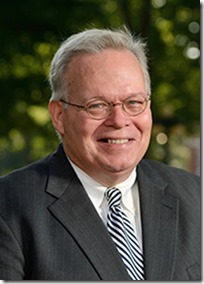
Sparky Reardon. University Communications Photo.
Brown: To quote Katherine Meadowcroft, Cultural activist and writer, “What one leaves behind is the quality of one’s life, the summation of the choices and actions one makes in this life, our spiritual and moral values.” What is your legacy?
Reardon: I’ll let those who survive me determine what my legacy is. What do I hope they say? “He cared.”
Brown: Anything else you’d like to talk about?
Reardon: I think the one thing of which I am most proud was working with a great group of people to develop the Ole Miss Creed. I am so pleased that it seems to have become a part of the fabric of Ole Miss. I can’t imagine having done anything else with my life. I consider myself so very fortunate to have worked doing something in which I believed, in a place that I wanted to be with people that I grew to love. I can never repay Ole Miss for what it has given me.
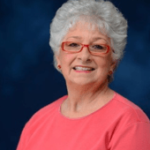
Bonnie Brown is a retired staff member of the University of Mississippi. She most recently served as Mentoring Coordinator for the Ole Miss Women’s Council for Philanthropy.
For questions or comments, email hottytoddynews@gmail.com.





























